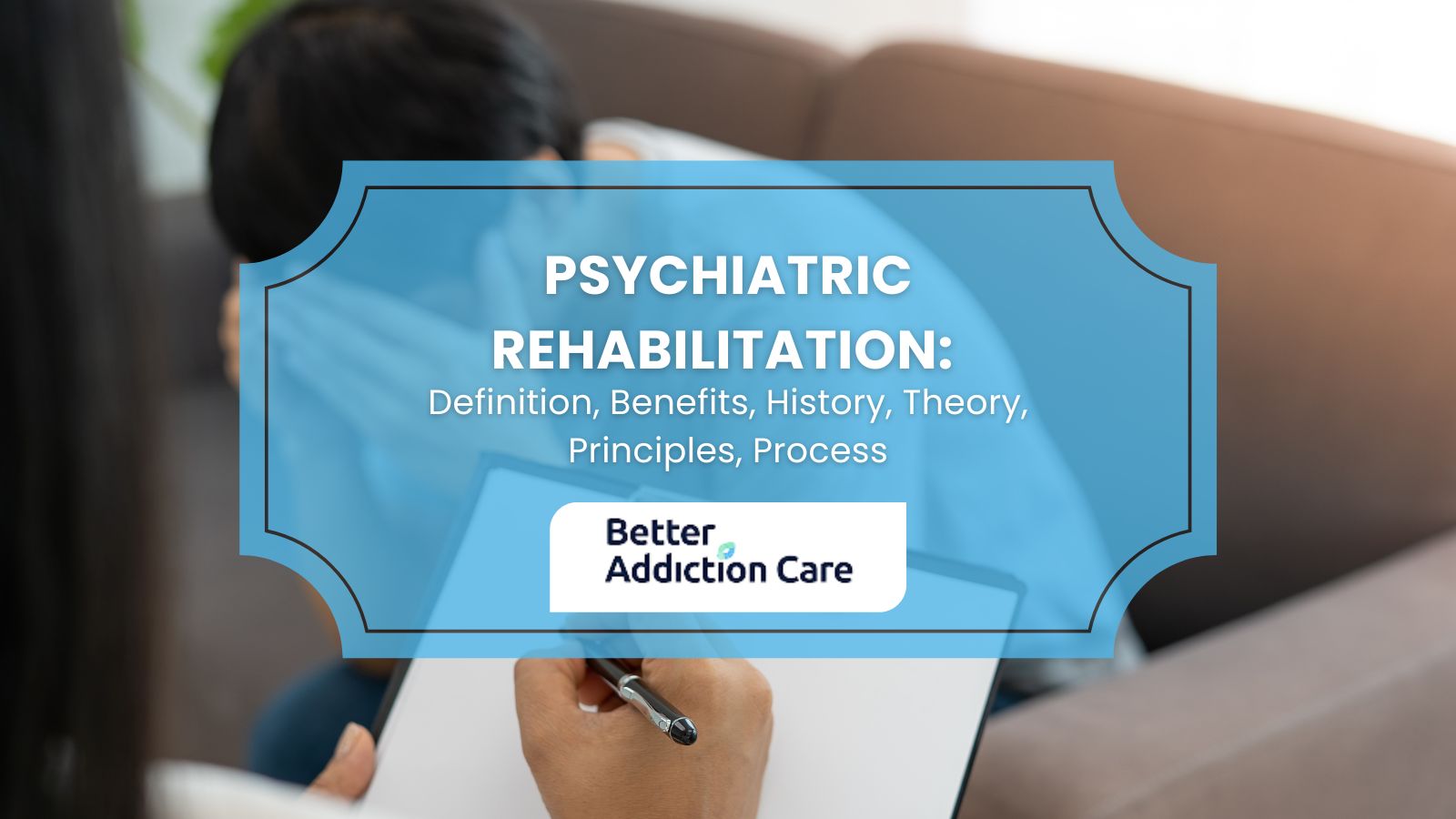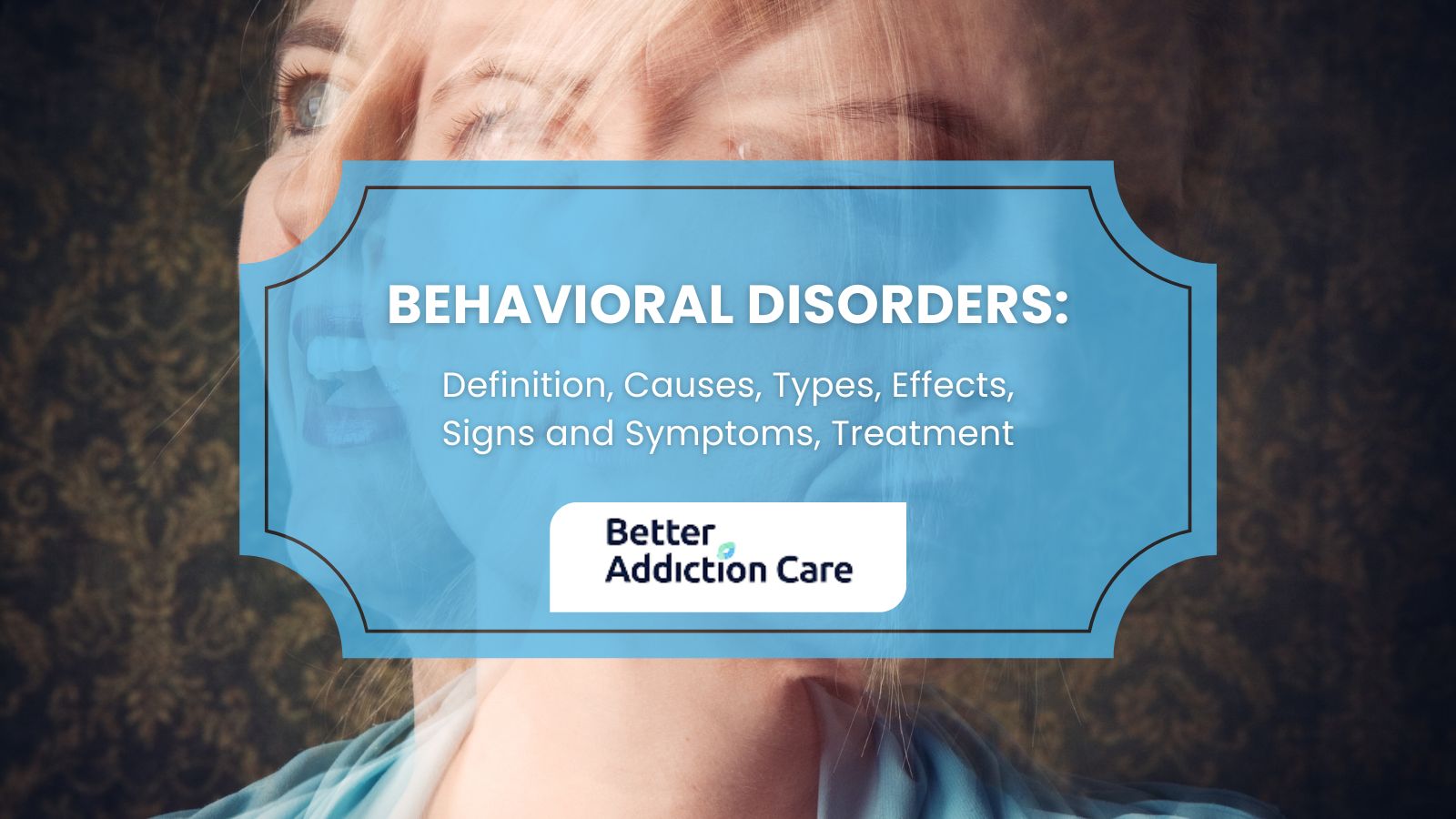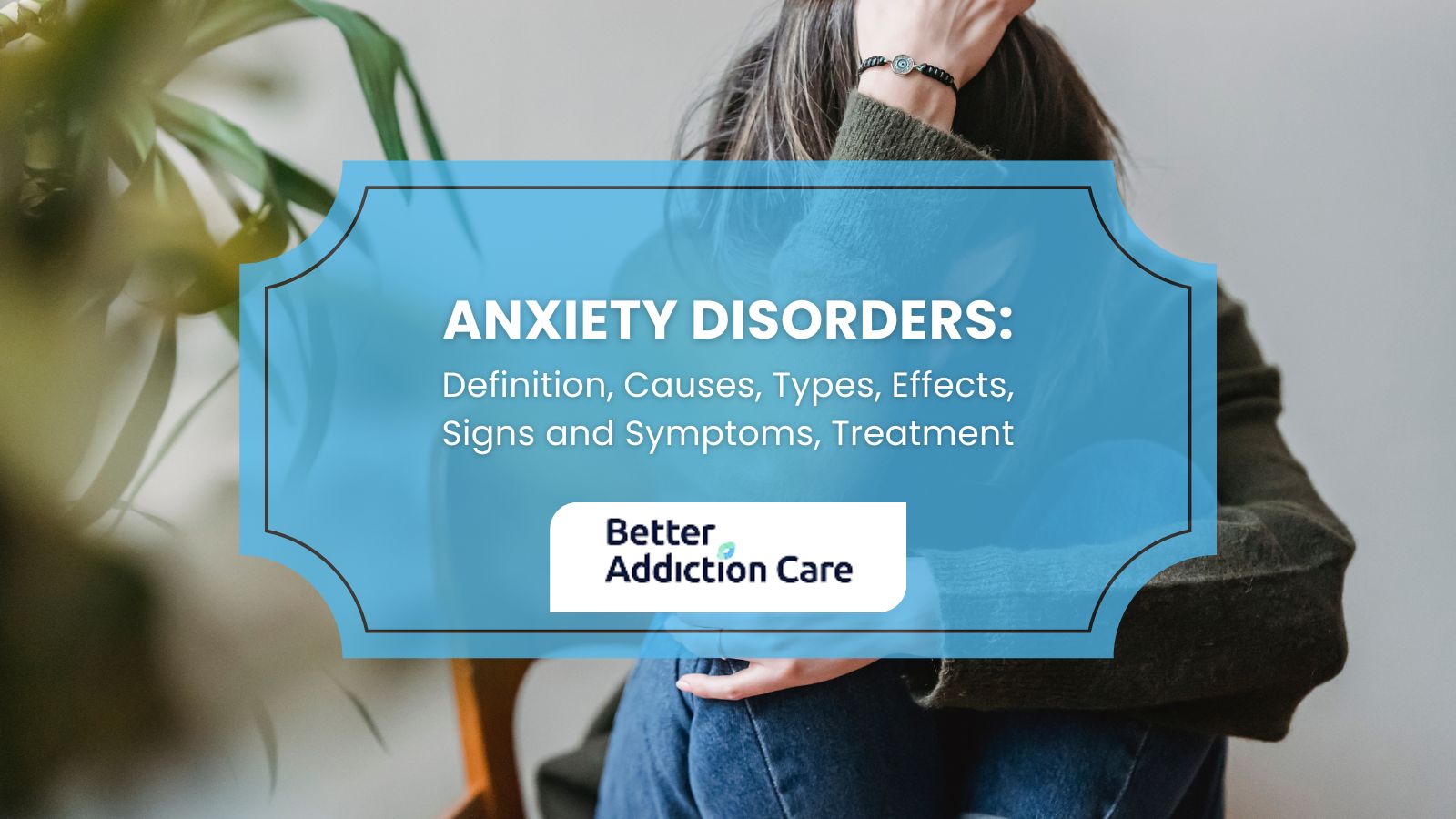Mental Health Therapy: Definition, Types, Alternative Treatment
Mental health therapy is a structured treatment approach designed to help individuals manage and overcome psychological and emotional challenges. Therapy is important for addressing mental health disorders such as depression, anxiety, PTSD, and substance use disorders, providing individuals with the tools they need to lead healthier and more fulfilling lives. According to Statista, in 2023, roughly 59.2 million US adults received mental health treatment or counseling, with 23.9% of adults receiving any treatment in the past 12 months, an increase from 19.2% in 2019.
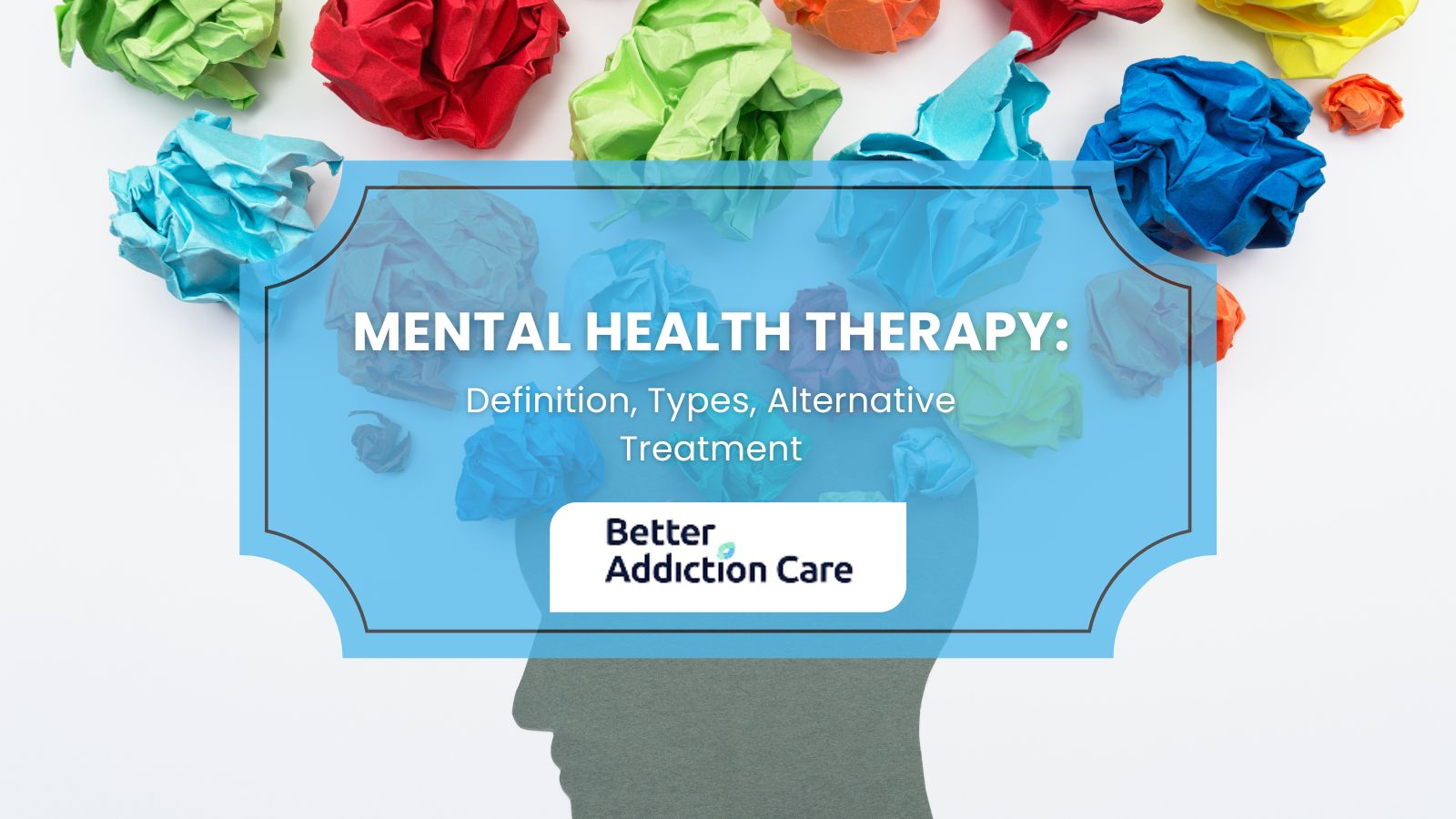
Mental health therapy is a structured treatment approach designed to help individuals manage and overcome psychological and emotional challenges. Therapy is important for addressing mental health disorders such as depression, anxiety, PTSD, and substance use disorders, providing individuals with the tools they need to lead healthier and more fulfilling lives. According to Statista, in 2023, roughly 59.2 million US adults received mental health treatment or counseling, with 23.9% of adults receiving any treatment in the past 12 months, an increase from 19.2% in 2019.
The common types of mental health therapy are Cognitive Behavioral Therapy (CBT), Dialectical Behavior Therapy (DBT), and Psychodynamic Therapy. CBT is considered the most effective due to its structured approach, focusing on changing negative thought patterns and behaviors. A study by Johnco CJ et al. 2024, titled “Long-term remission and relapse of anxiety and depression in older adults after Cognitive Behavioural Therapy (CBT): A 10-year follow-up of a randomised controlled trial,” indicates that CBT has a success rate of 60 to 80% in treating anxiety and depression, making it a preferred treatment method. Other therapies, such as Interpersonal Therapy (IPT) and Eye Movement Desensitization and Reprocessing (EMDR), are highly effective for specific conditions like social anxiety and PTSD.
Alternative treatments for mental health include meditation, yoga, acupuncture, herbal supplements, and physical activity, all of which contribute to stress reduction and emotional stability. Practices such as hypnosis, biofeedback, and sound healing are also utilized to promote relaxation and mindfulness. While alternative treatments are not always a substitute for psychotherapy, many individuals find them beneficial in managing symptoms and enhancing overall mental health.
What is Mental Health Therapy?
Mental health therapy, or psychotherapy, is a professional treatment designed to help individuals manage and overcome emotional, psychological, and behavioral challenges. It involves structured conversations between a licensed therapist and a client, utilizing various evidence-based techniques to improve mental well-being. Therapy is conducted in individual, group, family, or couples settings and involves different approaches, such as cognitive-behavioral therapy (CBT), psychodynamic therapy, or mindfulness-based interventions.
According to the National Institute of Mental Health (NIMH), approximately 57.8 million adults in the United States experienced a mental illness in 2021, with only about 47% receiving treatment. Globally, the World Health Organization (WHO) reports that depression affects over 280 million people, making it one of the leading causes of disability.
The benefits of therapy extend beyond treating mental illnesses like anxiety, depression, and post-traumatic stress disorder (PTSD). It also helps individuals navigate life challenges, such as grief, relationship conflicts, and stress management. According to the American Psychiatric Association, 75% of people who engage in therapy experience symptom relief and an overall improvement in their well-being, reinforcing its effectiveness as an important tool for mental health care.
What Are the Common Types of Mental Health Therapy?
The common types of mental health therapy are Cognitive Behavioral Therapy (CBT), Dialectical Behavior Therapy (DBT), Psychodynamic Therapy, and Motivation Enhancement Therapy. These therapies are widely used to address a range of psychological disorders and emotional difficulties. Each therapy has a unique approach, but all aim to improve mental well-being by modifying thought patterns, emotional responses, and behavioral patterns.
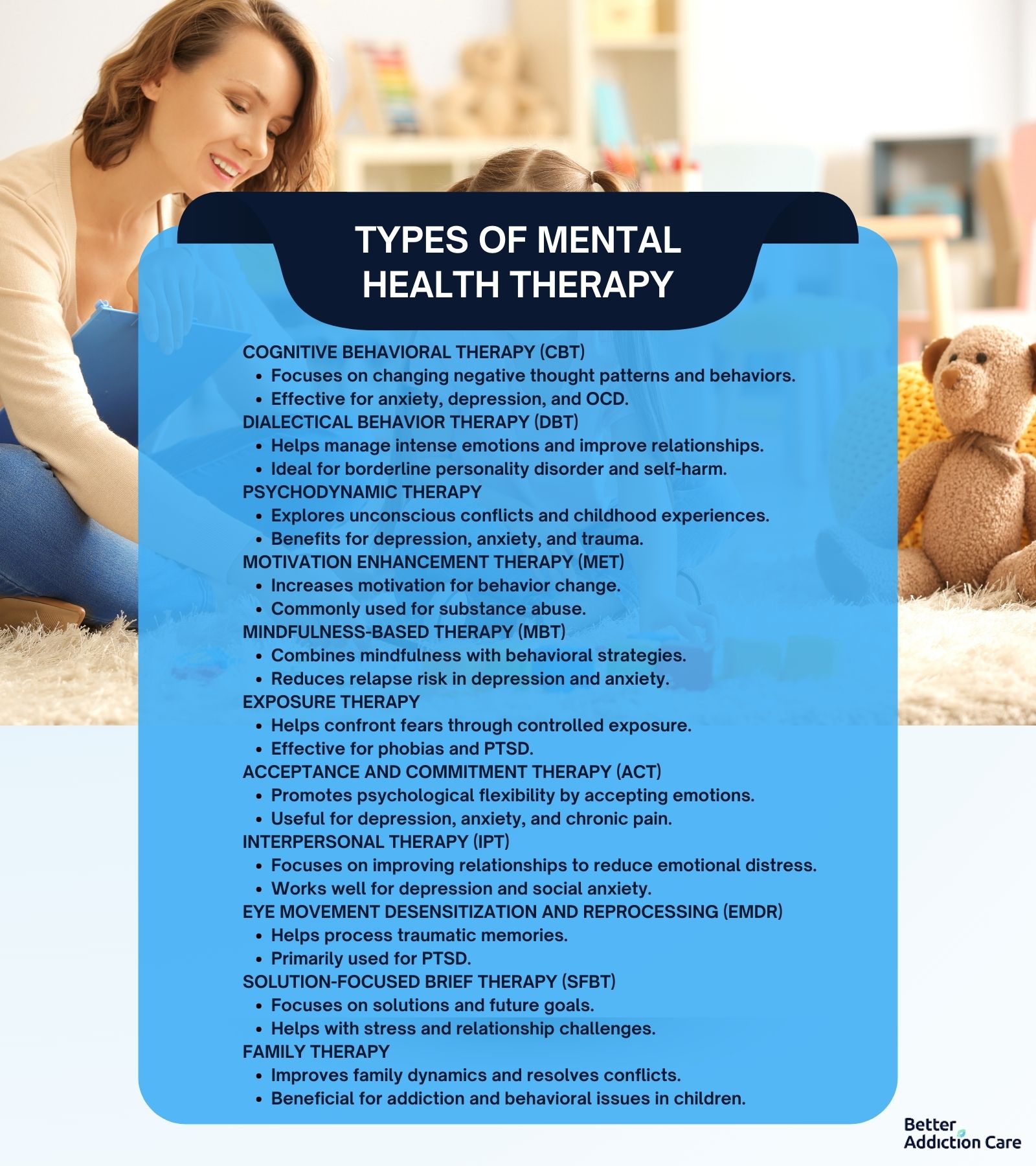
Cognitive Behavioral Therapy (CBT)
Cognitive Behavioral Therapy (CBT) is a widely used, evidence-based form of psychotherapy that focuses on identifying and altering negative thought patterns and behaviors. It is based on the premise that thoughts, emotions, and behaviors are interconnected, and by changing unhelpful cognitive distortions, individuals improve their emotional well-being. CBT is structured, goal-oriented, and short-term, making it practical for treating conditions such as depression, anxiety, and obsessive-compulsive disorder (OCD).
CBT works through cognitive restructuring, where individuals learn to identify irrational or harmful thoughts and replace them with balanced, realistic alternatives. Techniques include cognitive reframing, exposure therapy for anxiety-related disorders, behavioral activation for depression, and problem-solving strategies. Patients are assigned homework, such as journaling or exposure exercises, to reinforce learned skills outside therapy sessions.
Cognitive Behavioral Therapy is suitable for individuals struggling with mood disorders, phobias, PTSD, eating disorders, and even chronic pain management. Research by the American Psychiatric Association shows that 70 to 80% of individuals with anxiety and depression experience symptom improvement after undergoing CBT. The therapy is commonly used in both individual and group settings and is integrated with medication for enhanced outcomes.
Dialectical Behavior Therapy (DBT)
Dialectical Behavior Therapy (DBT) is a specialized form of cognitive-behavioral therapy developed to help individuals with intense emotional regulation difficulties, particularly those with borderline personality disorder (BPD). It combines acceptance-based strategies with behavioral change techniques to help patients manage distress, improve relationships, and develop coping skills.
DBT consists of four core modules: mindfulness, distress tolerance, emotion regulation, and interpersonal effectiveness. Patients engage in skills training through structured sessions with diary cards to track emotions and behaviors. Therapists provide coaching, both in-person and sometimes through phone consultations, to help clients apply skills in real-life situations.
Dialectical Behavior Therapy is primarily designed for individuals with personality disorders, self-harming behaviors, and suicidal tendencies but has also been adapted for eating disorders and substance abuse treatment. A study by Stiglmayr C et al. 2014, titled “Effectiveness of dialectic behavioral therapy in routine outpatient care: the Berlin Borderline Study,” indicates that 77% of individuals with BPD show significant improvement in emotional regulation after one year of DBT. Due to its effectiveness, DBT is widely used in both inpatient and outpatient settings.
Psychodynamic Therapy
Psychodynamic therapy is a long-term therapeutic approach that explores unconscious conflicts, childhood experiences, and deep-seated emotional struggles that influence present-day behaviors and emotions. Rooted in Freudian theory, this therapy aims to bring unconscious thoughts and emotions to conscious awareness, allowing individuals to gain insight and resolve inner conflicts.
In psychodynamic therapy, the therapist facilitates free association, dream analysis, and transference interpretation to help clients uncover underlying patterns in their thoughts and emotions. Unlike CBT, which focuses on immediate symptom relief, psychodynamic therapy delves into a client’s past and personal history to promote deep, lasting change.
Psychodynamic therapy is beneficial for individuals with depression, anxiety, personality disorders, and unresolved trauma. It is beneficial for those who struggle with self-esteem, interpersonal relationships, and emotional self-awareness.
A meta-analysis by Dunlop BW et al. 2016, titled "Evidence-Based Applications of Combination Psychotherapy and Pharmacotherapy for Depression," found that 70% of patients with depression reported long-term relief after completing psychodynamic therapy. Its effectiveness also extends to anxiety disorders. A study by Leichsenring F et al. 2014, titled "Long-Term Outcome of Psychodynamic Therapy and Cognitive-Behavioral Therapy in Social Anxiety Disorder," highlights its benefits for anxiety, reporting that 60% of individuals undergoing psychodynamic therapy for anxiety saw significant improvements in their symptoms within 12 months of treatment.
Psychodynamic therapy leads to sustained improvements even after treatment ends. Research by Leichsenring F, Rabung S et al. 2008, titled "Effectiveness of Long-Term Psychodynamic Psychotherapy: A Meta-Analysis," shows that individuals who receive psychodynamic therapy experience fewer relapses, with improvement rates at 95%. These findings underscore the therapy’s effectiveness in providing lasting psychological relief.
Motivation Enhancement Therapy (MET)
Motivation Enhancement Therapy (MET) is a brief, client-centered approach that aims to increase an individual’s motivation to change problematic behaviors, particularly in substance use disorders. Unlike confrontational methods, MET helps clients explore their own motivations and resolve ambivalence toward change.
MET works through structured sessions that employ motivational interviewing techniques. Therapists use open-ended questions, affirmations, reflective listening, and personalized feedback to help clients strengthen their commitment to change. Sessions are short-term, lasting between 4 to 6 weeks, making MET a time-efficient intervention.
This therapy is most effective for individuals struggling with substance abuse, alcoholism, and behavioral addictions. A study by Kathleen Carroll K et al. 2007, titled “MET (Motivational Enhancement Treatment) to Improve Treatment Engagement and Outcome in Subjects Seeking Treatment for Substance Abuse,” has shown that MET increases treatment engagement and reduces substance use relapse rates, particularly when combined with other behavioral therapies. Due to its brief yet impactful nature, MET is commonly integrated into addiction treatment programs worldwide.
Mindfulness-Based Therapy
Mindfulness-Based Therapy (MBT) is an approach that integrates mindfulness practices with cognitive and behavioral strategies to improve emotional regulation and mental well-being. It is based on the principle of cultivating present-moment awareness without judgment, helping individuals disengage from negative thought patterns and emotional distress. MBT is particularly effective in preventing relapse in individuals with recurrent depression and managing stress-related disorders.
MBT includes techniques such as mindfulness meditation, body scans, and mindful breathing exercises. It is delivered in structured programs like Mindfulness-Based Cognitive Therapy (MBCT) or Mindfulness-Based Stress Reduction (MBSR). These techniques help individuals recognize automatic negative thoughts and develop a non-reactive, accepting attitude toward them.
This therapy is helpful for individuals experiencing chronic stress, depression, anxiety, and even chronic pain. A Meta-analysis From Randomized Trials by Kuyken W, Warren FC et al. 2016, titled “Efficacy of Mindfulness-Based Cognitive Therapy in Prevention of Depressive Relapse: An Individual Patient Data Meta-analysis From Randomized Trials,” suggests that MBT reduces the risk of depression relapse by up to 31% in individuals with recurrent depression and is equally effective as antidepressant medication for long-term maintenance. Due to its benefits, MBT is increasingly incorporated into mental health and wellness programs globally.
Exposure Therapy
Exposure Therapy is a cognitive-behavioral approach designed to help individuals confront and overcome fears, anxieties, and traumatic memories. It is particularly effective for treating phobias, PTSD, and obsessive-compulsive disorder (OCD). The therapy is based on the principle of desensitization, where repeated and controlled exposure to feared situations or stimuli reduces anxiety responses over time.
The therapy gradually exposes individuals to their feared stimuli in a safe, controlled environment. Techniques include imaginal exposure (visualizing feared situations), in vivo exposure (real-life exposure), and virtual reality exposure (computer-generated simulations). Over time, this process helps individuals build confidence and reduce avoidance behaviors.
Exposure Therapy is highly effective, with 60-90% of individuals with phobias and PTSD experiencing significant symptom improvement after treatment, as studied by Cleveland Clinic. It is commonly used in military PTSD programs and anxiety disorder treatment plans worldwide.
Acceptance and Commitment Therapy (ACT)
Acceptance and Commitment Therapy (ACT) is a third-wave cognitive-behavioral therapy that helps individuals develop psychological flexibility by accepting difficult emotions rather than avoiding them. ACT encourages individuals to align their behaviors with personal values while managing distressing thoughts through mindfulness and acceptance strategies.
ACT employs techniques such as cognitive diffusion (reducing the impact of negative thoughts), values clarification (identifying meaningful life goals), and acceptance strategies (embracing emotions rather than resisting them). These techniques help individuals break free from unhelpful thought patterns and live by following their values.
ACT is beneficial for individuals with depression, anxiety, chronic pain, and stress-related disorders. A study by Samaan M, Diefenbacher A, Schade C, Dambacher C, Pontow IM, Pakenham K, Fydrich T. et al. 2021, titled “A clinical effectiveness trial comparing ACT and CBT for inpatients with depressive and mixed mental disorders” indicate that ACT is as effective as CBT for anxiety and depression, with long-term benefits in emotional resilience. Due to its focus on long-term well-being, ACT is widely integrated into psychotherapy and workplace mental health programs.
Interpersonal Therapy (IPT)
Interpersonal Therapy (IPT) is a short-term, evidence-based therapy that focuses on improving interpersonal relationships and communication skills to alleviate emotional distress. It is particularly effective in treating depression, social anxiety, and relationship conflicts, as studied by Karasu TB, Gelenberg A, Wang P, et al. 2000, titled “Practice guideline for the treatment of patients with major depressive disorder (revision).”
IPT works by identifying problematic relationship patterns and helping individuals develop healthier communication strategies. It is structured into three main phases: identifying interpersonal issues, addressing conflicts, and reinforcing positive social interactions. This approach helps individuals build stronger emotional connections and reduce feelings of isolation.
IPT is widely used for individuals with depression, particularly those experiencing grief, role transitions, or interpersonal disputes. Research by Gamble SA, et al. 2013, titled “A pilot study of interpersonal psychotherapy for alcohol-dependent women with co-occurring major depression,” suggests that IPT is as effective as antidepressants for mild-to-moderate depression, with significant relapse prevention.
The study found that IPT significantly reduced depressive symptoms in women with alcohol dependence and major depression, lowering clinically severe depression to less than mild levels by treatment end, with improvements maintained at the 32-week follow-up. Due to its targeted approach, IPT is commonly used in clinical and community mental health settings.
Eye Movement Desensitization and Reprocessing (EMDR)
Eye Movement Desensitization and Reprocessing (EMDR) is a structured therapy designed to help individuals process traumatic memories and reduce distressing symptoms associated with PTSD. Developed in the late 1980s, EMDR is based on the idea that bilateral stimulation (such as guided eye movements) facilitates the brain’s ability to reprocess traumatic memories.
EMDR sessions involve recalling traumatic events while following the therapist’s guided eye movements or other forms of bilateral stimulation, such as tapping or auditory cues. This process allows the brain to reframe distressing memories, reducing their emotional intensity and impact.
EMDR is primarily used for individuals with PTSD, trauma-related anxiety, and dissociative disorders. Research by Wilson SA, Becker LA, Tinker RH. et al. 1994, titled “Fifteen-month follow-up of eye movement desensitization and reprocessing (EMDR) treatment of posttraumatic stress disorder and psychological trauma,” indicates that up to 90% of single-trauma PTSD patients experience significant symptom reduction after 3 to 4 EMDR sessions. Due to its high success rate, EMDR is widely used in trauma therapy and military rehabilitation programs.
Solution-Focused Brief Therapy (SFBT)
Solution-Focused Brief Therapy (SFBT) is a goal-oriented, future-focused approach that helps individuals identify solutions rather than dwelling on problems. It is based on the principle that small, positive changes lead to significant improvements in mental well-being.
SFBT involves structured conversations where therapists use scaling questions (to measure progress), miracle questions (to envision desired outcomes), and exception questions (to identify times when the problem was absent or less severe). These techniques help individuals focus on strengths and actionable solutions.
SFBT is beneficial for individuals dealing with stress, relationship issues, and workplace challenges. A study by Żak, A. M., & Pękala, K. et al. 2024, titled “Effectiveness of solution-focused brief therapy: An umbrella review of systematic reviews and meta-analyses,” shows that SFBT leads to significant improvements in as few as 4 to 6 sessions, making it a popular choice for brief interventions in clinical and coaching settings.
Family Therapy
Family Therapy is a systemic approach that focuses on improving relationships and resolving family conflicts. It helps family members understand and support one another while addressing issues such as communication breakdowns, behavioral problems, and mental health conditions affecting the family unit.
Family Therapy employs techniques such as structural therapy (modifying family interactions), strategic therapy (problem-solving within family dynamics), and narrative therapy (reshaping personal and shared stories). These approaches help families develop healthier communication patterns and emotional bonds.
This therapy is particularly beneficial for families dealing with addiction, trauma, or behavioral issues in children. Research by Rowe CL. et al. 2010, titled “Multidimensional family therapy: addressing co-occurring substance abuse and other problems among adolescents with comprehensive family-based treatment,” indicates that family therapy reduces relapse rates in adolescents with substance use disorders by 40 to 60%. It is widely used in child and adolescent mental health services, rehabilitation centers, and community support programs.
Experiential Therapy
Experiential Therapy is an interactive, action-based approach that helps individuals process emotions and trauma through creative and physical activities. Unlike traditional talk therapy, experiential therapy involves engaging in activities such as art, music, drama, or outdoor experiences to facilitate emotional expression.
Experiential Therapy works by encouraging individuals to explore their emotions in non-verbal ways. Techniques include role-playing, guided imagery, and art-based expression, which help individuals access and process deep-seated emotions that are difficult to verbalize.
Experiential therapy is beneficial for individuals with trauma, PTSD, addiction, and emotional suppression. A study by Ellison, J. A., & Greenberg, L. S. et al. 2007, titled “Emotion-focused Experiential Therapy,” suggests that experiential therapy enhances emotional processing and engagement, leading to more profound therapeutic outcomes than traditional talk therapy alone. It is widely used in rehabilitation centers, trauma recovery programs, and holistic mental health settings.
What is the Most Common Therapy for Mental Health?
The most common therapy for mental health is Cognitive Behavioral Therapy (CBT), a widely used, evidence-based treatment that helps individuals identify and change negative thought patterns and behaviors. Research by Healthline shows that CBT is effective for up to 75% of people receiving treatment for anxiety, depression, and other mental health disorders. It works by teaching coping strategies, problem-solving skills, and cognitive restructuring techniques to improve emotional regulation. CBT is recommended by leading health organizations, including the American Psychological Association (APA) and the National Institute of Mental Health (NIMH), due to its strong scientific backing and adaptability across various mental health conditions.
What to Expect During A Mental Health Therapy Session?
During a mental health therapy session, individuals should expect a structured conversation with a licensed therapist aimed at understanding their thoughts, emotions, and behaviors while working toward personal growth and symptom relief. Sessions discuss concerns, setting therapeutic goals, and developing coping strategies tailored to individual needs.
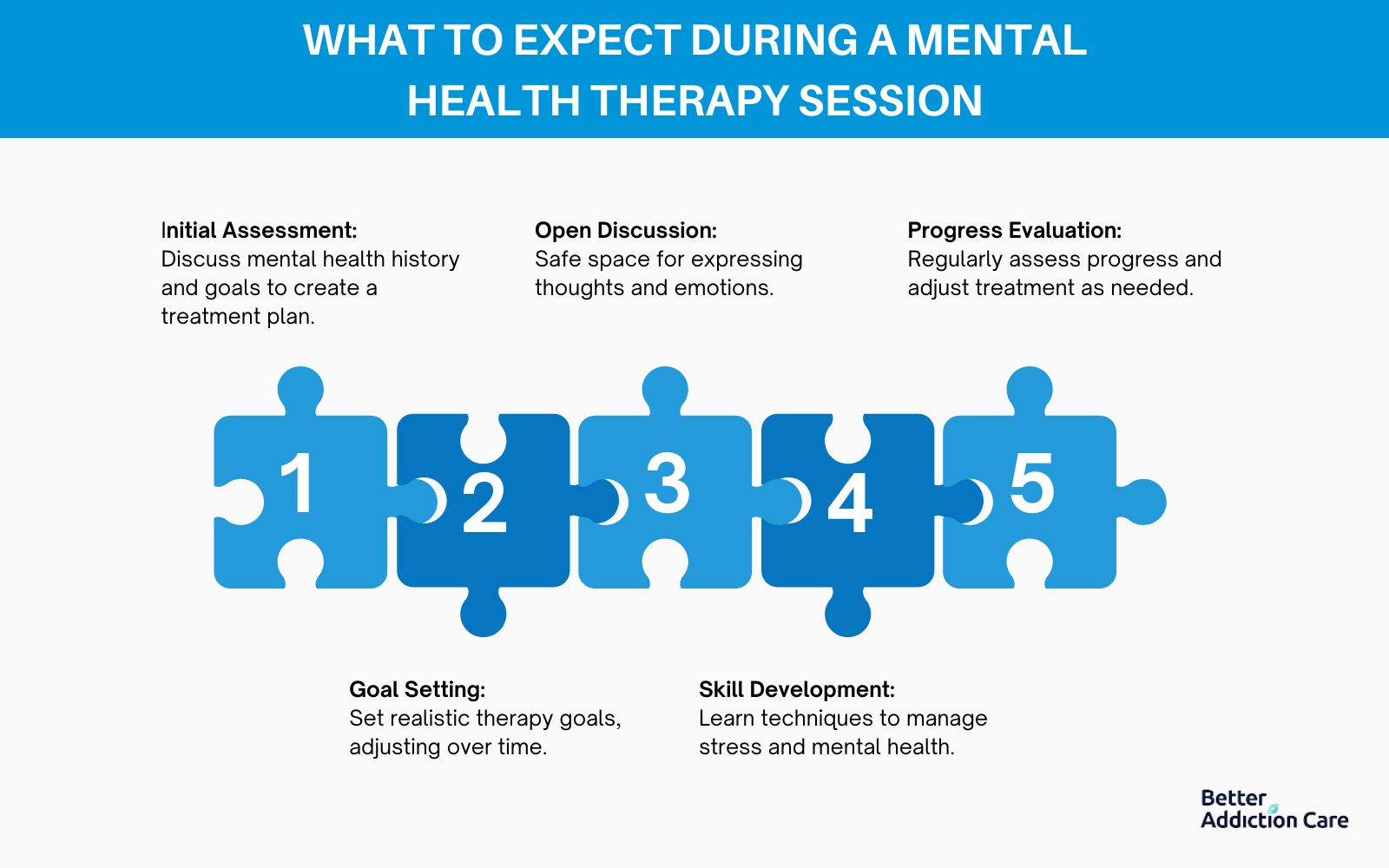
Individuals expect the following things during a mental health therapy session:
-
Initial Assessment: The first session usually involves an in-depth assessment where the therapist gathers information about the individual's mental health history, current challenges, and therapy goals. This helps in creating a personalized treatment plan.
-
Goal Setting and Treatment Planning: Therapists and clients work together to set realistic goals for therapy. These goals focus on symptom reduction, improving coping mechanisms, or enhancing overall well-being. The treatment plan is adjusted over time based on progress.
-
Open Discussion and Emotional Support: Each session provides a safe and confidential space for individuals to express their thoughts and emotions without judgment. Therapists use active listening and therapeutic techniques to guide conversations toward self-awareness and problem-solving.
-
Skill Development and Coping Strategies: Depending on the therapy type, individuals learn specific techniques such as cognitive restructuring, mindfulness exercises, relaxation methods, or behavioral strategies to manage stress, anxiety, and other mental health concerns.
-
Progress Evaluation and Adjustments: Therapists regularly assess progress by discussing changes in thoughts, behaviors, and emotions. If needed, treatment approaches are modified to ensure effectiveness in addressing the individual's needs.
What Are the Benefits of Mental Health Therapy?
The benefits of mental health therapy are improved emotional regulation, symptom relief, and stronger interpersonal relationships. Therapy provides individuals with coping strategies to manage stress, anxiety, and depression while encouraging self-awareness and long-term resilience. It also enhances communication skills, helping individuals build healthier relationships and improve overall well-being.
The benefits of mental health therapy are as follows:
-
Emotional Regulation and Self-Awareness: Mental health therapy helps individuals understand their emotions, identify triggers, and develop healthier ways to cope with stress and negative thoughts. This leads to better emotional stability and resilience.
-
Symptom Relief for Mental Health Conditions: Mental health therapy effectively reduces symptoms of anxiety, depression, PTSD, and other mental health disorders, as studied by the Cleveland Clinic. Cognitive Behavioral Therapy (CBT), for example, has been found to help up to 75% of individuals experiencing emotional distress.
-
Improved Relationships and Communication: Mental health therapy enhances interpersonal skills, allowing individuals to express themselves more effectively and build stronger, healthier relationships with family, friends, and colleagues.
-
Better Coping Strategies for Stress and Life Challenges: Mental health therapy equips individuals with problem-solving techniques and stress-management tools, making it easier to handle difficult situations, transitions, and personal struggles.
-
Increased Self-Confidence and Personal Growth: Mental health therapy helps by addressing negative thought patterns and behaviors. It facilitates self-acceptance and confidence, helping individuals take control of their lives and achieve personal growth.
What are the Challenges and Limitations of Mental Health Therapy?
The challenges and limitations of mental health therapy are high costs, accessibility barriers, and variability in treatment effectiveness. While therapy is highly beneficial, not everyone has equal access due to financial constraints, limited availability of trained professionals, or long wait times. The effectiveness of therapy varies depending on the individual's commitment, the therapist's approach, and the nature of the mental health condition.
The challenges and limitations of mental health therapy are as follows:
-
High Costs and Limited Insurance Coverage: Therapy sessions are expensive, and many insurance plans provide limited coverage for mental health services, as studied by Rowan K, McAlpine DD, and Blewett LA. et al. 2013, titled “Access and cost barriers to mental health care, by insurance status, 1999-2010.” This financial burden prevents some individuals from seeking or continuing treatment.
-
Accessibility and Availability Issues: Many areas, especially rural communities, have a shortage of mental health professionals, making it difficult for individuals to find timely and appropriate care. Long waitlists further delay access to necessary treatment.
-
Effectiveness Varies by Individual: Mental health therapy is not a one-size-fits-all solution. Some individuals respond well to certain therapeutic approaches, while others struggle to see progress, requiring adjustments in treatment methods or therapists, as studied by Yadav G., McNamara S, Gunturu S., et al. 2024, titled “Trauma-Informed Therapy.”
-
Emotional Discomfort and Resistance to Change: Mental health therapy involves confronting difficult emotions, past traumas, or ingrained thought patterns that are uncomfortable. Some individuals resist therapy or feel discouraged when immediate progress is not seen.
-
Stigma and Social Barriers: Despite increasing awareness, the societal stigma surrounding mental health discourages individuals from seeking therapy. Fear of judgment from family, friends, or employers prevents people from prioritizing their mental well-being.
How Does A Drug Rehab Center Incorporate Mental Health Therapy in Treatment?
A drug rehab center incorporates mental health therapy in treatment by integrating evidence-based psychological interventions with addiction recovery programs to address both substance use disorders and co-occurring mental health conditions. These centers provide a combination of individual and group therapy, psychiatric care, and medication management to ensure a holistic and comprehensive approach to recovery.
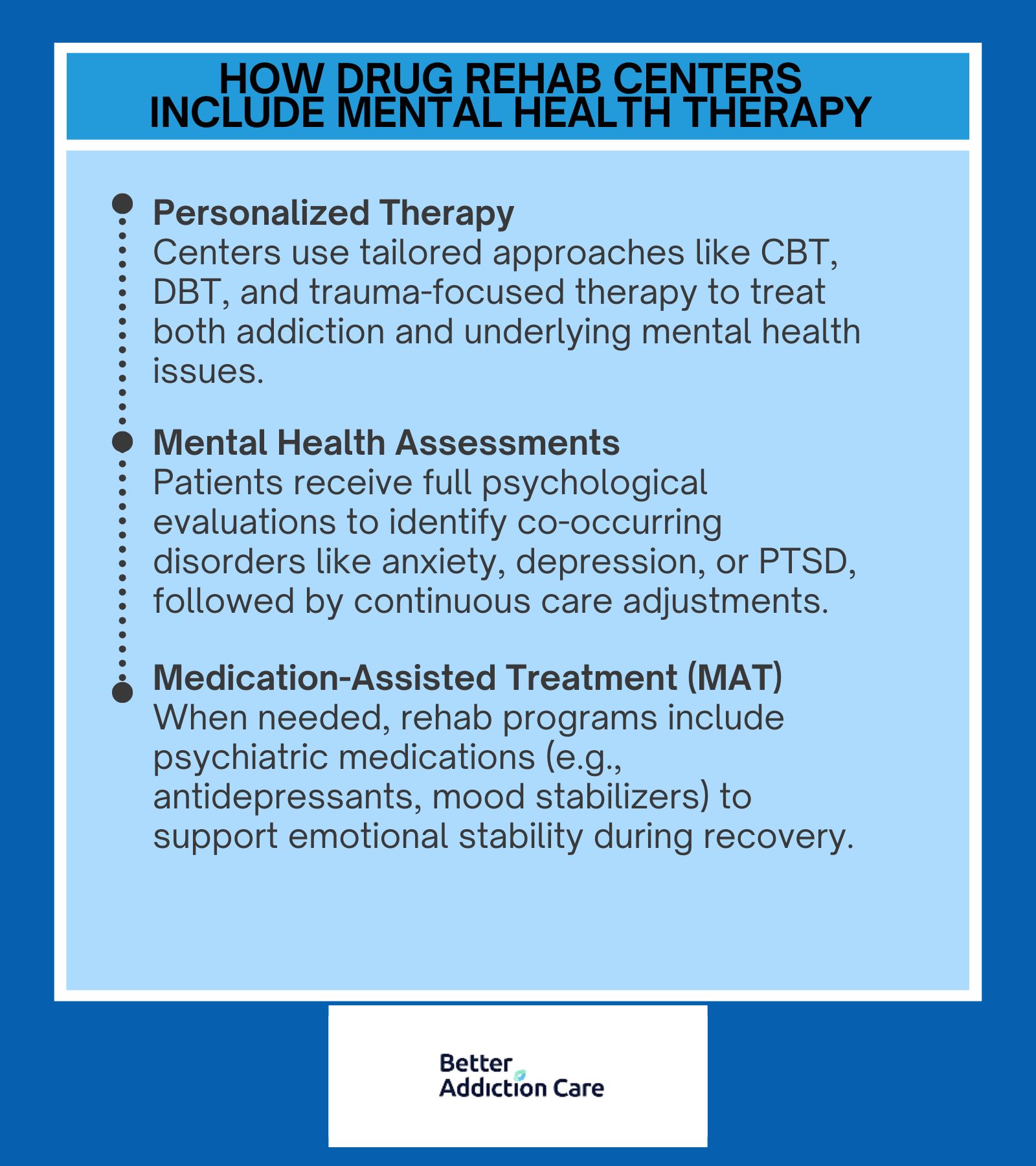
A drug rehab center incorporates mental health therapy in treatment in the following ways:
-
Individualized Therapy Programs: Rehab centers tailor therapy programs to each patient's specific needs, using approaches such as Cognitive Behavioral Therapy (CBT), Dialectical Behavior Therapy (DBT), and trauma-focused therapy. These therapies help individuals identify triggers, develop coping mechanisms, and address underlying mental health issues that contribute to substance use, according to Good Therapy titled “Individual Therapy (Psychotherapy): What You Need to Know.”
-
Comprehensive Mental Health Support: Patients undergo thorough medical and psychological assessments upon entering rehab to identify co-occurring disorders such as depression, anxiety, or PTSD. According to SAMHSA, throughout treatment, therapists and medical professionals provide ongoing monitoring and adjustments to therapy plans to ensure the most effective care.
-
Medication-Assisted Treatment (MAT): For individuals struggling with severe addiction and mental health disorders, medications such as antidepressants, anti-anxiety drugs, or mood stabilizers are prescribed alongside therapy. According to the National Institute of Mental Health, this approach helps manage withdrawal symptoms, stabilize mood, and support long-term mental health recovery.
How to Find a Rehab with Mental Health Therapy for Treatment?
To find a rehab with mental health therapy for treatment, individuals use various resources, including online directories, healthcare providers, and support organizations that specialize in addiction recovery. One of the most effective ways to locate a rehab that offers integrated mental health therapy is through online platforms, which provide a comprehensive database of treatment centers across the country. Individuals find a rehab that provides evidence-based mental health therapy, ensuring a more holistic and effective recovery process by utilizing these resources.
In addition to online directories, individuals seek referrals from doctors, therapists, or mental health professionals who recommend rehab centers based on specific needs. Many state and local health departments also provide lists of licensed facilities that offer dual-diagnosis treatment for both addiction and co-occurring mental health disorders. Support groups and advocacy organizations, such as Alcoholics Anonymous (AA) or Narcotics Anonymous (NA), also have recommendations based on firsthand experiences.
How to Choose the Right Therapy for You?
To choose the right therapy for you, consider your specific mental health needs, personal preferences, and treatment goals while researching different therapy types and their effectiveness. It’s important to assess whether you feel comfortable with a particular therapeutic approach and ensure the therapist is qualified to address your concerns. Consulting with a mental health professional also helps determine the best therapy option based on your symptoms, personality, and past experiences.
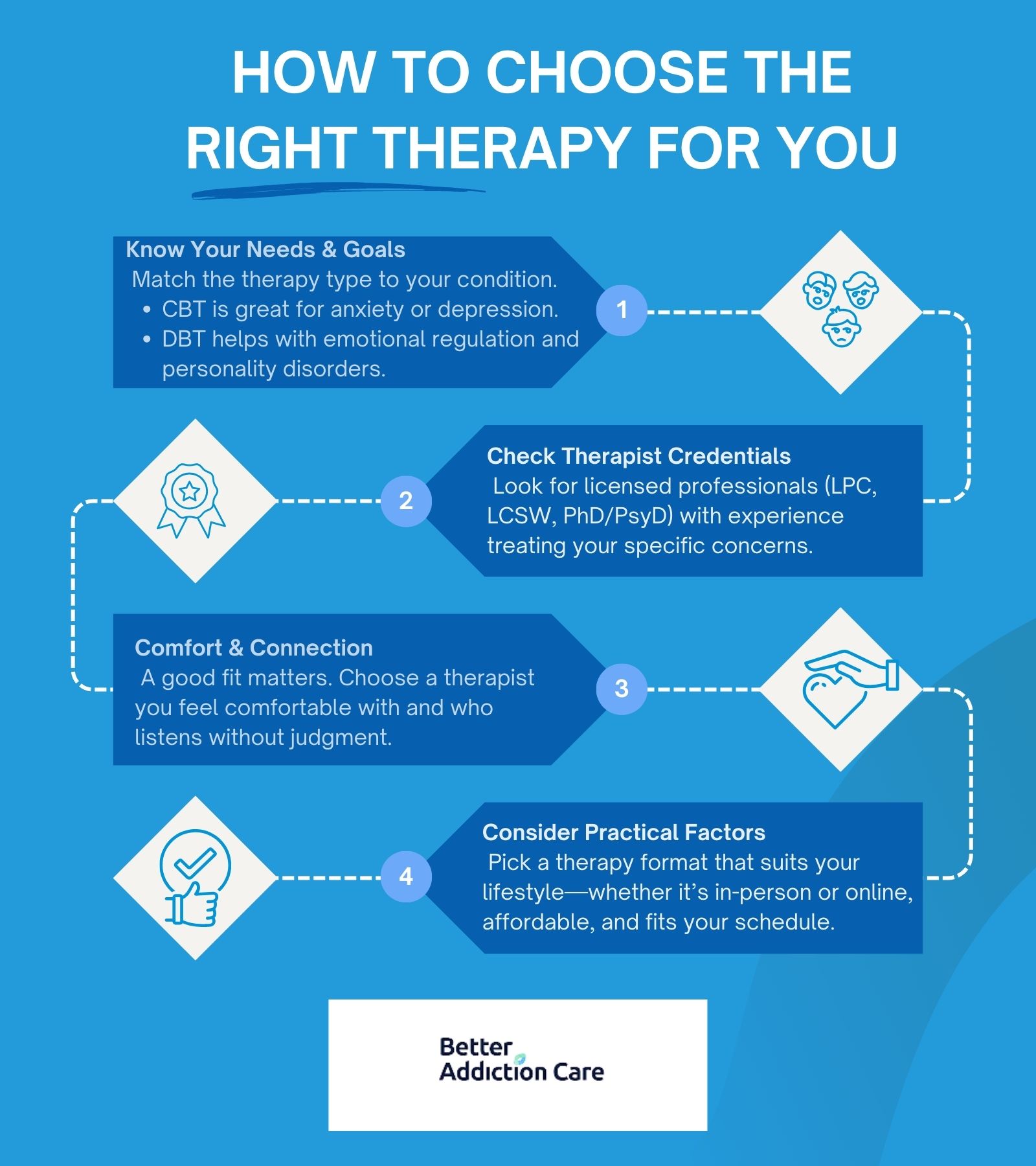
To choose the right therapy for you, look for the following things:
-
Your Mental Health Condition and Goals: Different therapies work better for specific conditions. For example, Cognitive Behavioral Therapy (CBT) is effective for anxiety and depression, while Dialectical Behavior Therapy (DBT) is commonly used for borderline personality disorder and emotional regulation. Apprehending your condition and treatment goals will help you select a therapy that aligns with your needs.
-
Therapist Qualifications and Experience: Ensure the therapist is licensed and trained in evidence-based treatments. Look for professionals with experience in treating your particular concerns, whether it’s trauma, addiction, or relationship issues. Licensed Professional Counselor (LPC), Licensed Clinical Social Worker (LCSW), and Licensed Psychologist (PhD or PsyD) are among the top licensing requirements for an authentic therapist. Checking credentials, reading reviews, and asking about their therapeutic approach help you make an informed choice.
-
Personal Comfort and Therapeutic Fit: Therapy is most effective when you feel comfortable with your therapist. Consider factors such as their communication style, approach to treatment, and whether you feel heard and supported. A strong therapeutic relationship is key to making progress in treatment.
-
Practical Considerations (Cost, Location, and Accessibility): Therapy must be accessible and fit within your lifestyle. Consider whether sessions are in-person or online, the cost of treatment, insurance coverage, and the therapist’s availability. Choosing a therapy option that is convenient and financially sustainable increases the likelihood of long-term success.
What Are Some Alternative Treatments to Mental Health Therapy?
Some alternative treatments to mental health therapy are meditation, yoga, acupuncture, and herbal supplements, among others. These approaches complement traditional therapy by promoting relaxation, reducing stress, and improving overall well-being. While they do not replace professional mental health treatment, they are valuable tools for managing symptoms of anxiety, depression, and other conditions.
Some alternative treatments to mental health therapy are as follows:
-
Meditation: A mindfulness-based practice that focuses on the present moment to reduce stress, anxiety, and negative thoughts. Studies show that regular meditation improves emotional regulation and lower cortisol levels. Evidence from a 2021 study in the Journal of Substance Abuse Treatment found that mindfulness-based interventions reduced relapse rates by 35%.
-
Yoga: Combines physical movement, breathing exercises, and meditation to improve mental and physical well-being. Yoga has been found to reduce symptoms of depression, anxiety, and PTSD while enhancing relaxation and resilience. A study by Kuppili PP, Parmar A, Gupta A, Balhara YPS. et al. 2018, titled “Role of Yoga in Management of Substance-use Disorders: A Narrative Review,” indicates that yoga serves as a beneficial complementary approach for treating alcohol use disorder, with randomized control trials highlighting its effectiveness in enhancing emotional regulation and decreasing substance cravings.
-
Acupuncture: A traditional Chinese medicine practice that involves inserting thin needles into specific points on the body to balance energy flow. Research by Wild B. et al. 2020, titled “Acupuncture in persons with an increased Stress level-Results from a Randomized-controlled Pilot Trial,” suggests acupuncture significantly reduces stress levels and enhances relaxation.
-
Herbal Supplements: Natural remedies like St. John’s Wort, ashwagandha, and valerian root are used to support mood and reduce stress. However, it’s important to consult a healthcare professional before use, as they interact with medications.
-
Exercise and Physical Activity: Regular physical movement, such as walking, running, or strength training, boosts endorphin levels, improves mood, and reduces stress. Exercise is widely recommended for managing depression and anxiety. A National Center for Complementary and Integrative Health study shows that exercise and physical activity reduce cravings and improve mood during recovery.
-
Nutrition and Dietary Changes: A balanced diet rich in omega-3 fatty acids, antioxidants, and probiotics supports brain function and emotional health. Poor nutrition contributes to mood disorders and cognitive decline.
-
Massage Therapy: Massage helps reduce muscle tension, improve circulation, and lower cortisol levels, promoting relaxation and emotional balance. It is particularly beneficial for individuals with chronic stress or PTSD.
-
Light Exposure Therapy: Light therapy is used to treat seasonal affective disorder (SAD) and mood disorders. Light exposure therapy involves exposure to a bright artificial light that mimics natural sunlight, helping regulate melatonin and serotonin levels.
-
Hypnosis: Hypnosis is a guided relaxation technique that helps individuals access their subconscious to address issues such as anxiety, phobias, and trauma. Hypnotherapy is used as a complementary treatment for mental health conditions.
-
Biofeedback: Biofeedback is a mind-body technique that uses electronic sensors to monitor physiological functions like heart rate and muscle tension, helping individuals learn how to regulate stress responses.
-
Sound Healing: Sound healing involves listening to specific frequencies, such as binaural beats or Tibetan singing bowls, to promote relaxation and mental clarity. According to Stolen Time, “The Healing Harmony of Sound Therapy” suggests that sound therapy reduces stress and improves sleep.
-
Journaling: Writing down thoughts and emotions as a therapeutic practice to process feelings, identify patterns, and relieve stress. Journaling has been shown to improve emotional resilience and self-awareness.
-
Aromatherapy: Aromatherapy uses essential oils like lavender, chamomile, and bergamot to promote relaxation, reduce anxiety, and enhance mood. Aromatherapy is used through diffusers, massages, or baths.
-
Cold Water Immersion: Cold water immersion, also known as cold therapy or ice baths, reduces inflammation, boosts circulation, and triggers the release of mood-enhancing neurotransmitters. Some studies suggest it helps reduce symptoms of depression and anxiety.
What Are Commonly Used Therapies for Depression and Anxiety?
Commonly used therapies for depression and anxiety are Cognitive Behavioral Therapy (CBT), Interpersonal Therapy (IPT), and Mindfulness-Based Cognitive Therapy (MBCT). These evidence-based treatments are highly effective in reducing symptoms and preventing relapse.
Cognitive Behavioral Therapy (CBT) is one of the most effective treatments for both depression and anxiety, helping individuals identify negative thought patterns and replace them with healthier ones. According to the American Psychological Association (APA), CBT is effective for approximately 60 to 80% of individuals with depression and anxiety disorders. Similarly, Mindfulness-Based Cognitive Therapy (MBCT) has been found to reduce the risk of depressive relapse by up to 50% in individuals with recurrent depression by Kuyken et al. 2016, titled “Efficacy of Mindfulness-Based Cognitive Therapy in Prevention of Depressive Relapse: An Individual Patient Data Meta-analysis From Randomized Trials.” Interpersonal Therapy (IPT) is particularly effective in treating depression by focusing on improving interpersonal relationships, with studies showing a moderate to large success rate in symptom reduction as studied by WebMD. These therapies offer long-term benefits by equipping individuals with coping strategies to manage their symptoms effectively.
What Are the Best Therapies for Trauma and PTSD?
The best therapy for trauma and PTSD is Eye Movement Desensitization and Reprocessing (EMDR). EMDR is widely recognized for its ability to help individuals process traumatic memories by using bilateral stimulation, such as guided eye movements, to reduce the emotional impact of distressing events.
Research by Carlson JG, Chemtob CM, Rusnak K, Hedlund NL, Muraoka MY. et al. 1998, titled “Eye movement desensitization and reprocessing (EMDR) treatment for combat-related posttraumatic stress disorder,” supports EMDR as an effective PTSD treatment, with studies showing up to a 77% reduction in PTSD symptoms after just 12 sessions. The American Psychological Association (APA) and World Health Organization (WHO) endorse EMDR as a primary treatment for PTSD.
Cognitive Processing Therapy (CPT) and Prolonged Exposure Therapy (PE) are also effective, helping individuals reframe negative beliefs about trauma and gradually reduce avoidance behaviors. These therapies enable individuals to regain control over their emotions and significantly improve their quality of life.
What Therapies Are Best for Dual Diagnosis Treatment?
CBT, Dialectical Behavior Therapy (DBT), and Integrated Treatment for Co-Occurring Disorders (ITCD) are best for dual diagnosis treatment. Dual diagnosis refers to the co-occurrence of a mental health disorder and substance use disorder, requiring a specialized, integrated approach.
Cognitive Behavioral Therapy (CBT) helps individuals identify triggers and develop coping mechanisms to prevent relapse, with studies by NIDA showing a 40 to 60% success rate in treating substance use disorders when combined with mental health care. Dialectical Behavior Therapy (DBT) is particularly beneficial for individuals with co-occurring borderline personality disorder and substance use, as it emphasizes emotional regulation and distress tolerance. Integrated Treatment for Co-Occurring Disorders (ITCD) combines therapy with medication management, improving long-term recovery outcomes. These therapies address dual diagnosis conditions simultaneously, leading to better overall treatment success.
What is a Psychotherapist?
A psychotherapist is a trained mental health professional who provides talk therapy to individuals, couples, or groups to help them manage emotional and psychological difficulties. Psychotherapists use various therapeutic techniques, such as CBT, DBT, and psychodynamic therapy, to help clients understand and change negative thought patterns and behaviors.
Psychotherapists hold advanced degrees in psychology, social work, counseling, or psychiatry and must be licensed to practice. Studies by WHO show that psychotherapy reduces symptoms of depression and anxiety by up to 50 to 60%. Unlike psychiatrists, psychotherapists do not prescribe medication but collaborate with medical professionals when medication management is necessary. Therapy sessions provide a safe space for individuals to explore their thoughts, emotions, and experiences, leading to improved mental well-being.
What is Talk Therapy?
Talk therapy, also known as psychotherapy, is a structured treatment method where individuals discuss their thoughts, emotions, and behaviors with a trained therapist to improve mental health. It is an umbrella term that includes CBT, psychodynamic therapy, interpersonal therapy, and humanistic therapy.
Talk therapy is widely recognized for its effectiveness in treating depression, anxiety, PTSD, and other mental health conditions. According to the National Institute of Mental Health (NIMH), approximately 75% of people who engage in talk therapy experience significant symptom improvement. It helps individuals develop coping strategies, improve emotional regulation, and gain insight into their thoughts and behaviors. Talk therapy is conducted individually, in couples, or group settings, making it a flexible and accessible form of mental health treatment.


